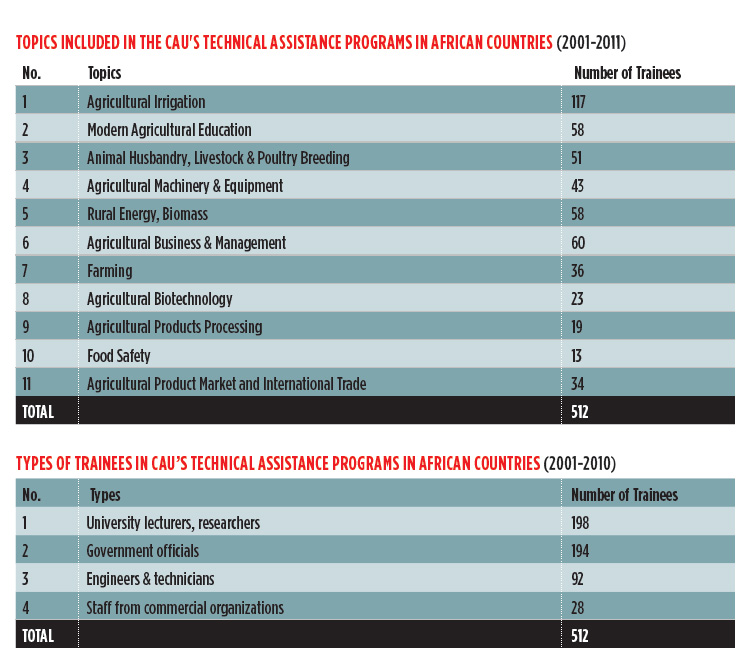
Many of the trainees say China's agricultural policies and technologies can be of value to the continent. "Africa has much to learn from China's domestic agricultural mechanization," says Phiri Sungani Zephania, a chief engineer in agricultural mechanization from Zambia. "China's experience offered a lot of inspiration for me. I definitely put those ideas into practice when I came back, in order to help the development of agricultural mechanization in [my] motherland."
Many experts said, grounded in African agricultural realities, the training programs not only transfer needed technological knowledge to African technical and management personnel but also expand cooperation effort on human resources development, helping prevent "brain drain." African agricultural technicians are crucial for the continent's economic and social development and the CAU's programs help keep these professionals where they are needed.
20+20 Cooperation Plan
In 2010, CAU was selected by the Ministry of Education to join the "20+20 Cooperation Project among China-Africa Universities" which is a platform for exchange and cooperation between Chinese and African universities. Its first action after this appointment was to begin one-on-one cooperation with the Institute of Agriculture and Veterinary at Faranah (ISAV/F), Guinea.
Under the plan, six lecturers and laboratory staff from ISAV/F took part in a two-month training program focused on sustainable agriculture and laboratory construction at the beginning of October of 2011. The CAU's Energy Engineering and Low Carbon Technology Laboratory is helping to build a sustainable agriculture laboratory at ISAV/F outfitted with advanced biogas experiment. It is also planning to send one or two lecturers to Guinea to teach and participate in research exchange in summer 2012.
Dr. Diallo Sara Bailo, the Rector of ISAV/F is thankful for CAU's efforts. "Such working efficiency surprised me a lot," he says. ISAV/F lecturers attended training programs in China only two months after the universities signed their cooperation agreement last year. In this February, CAU sent a delegation to Guinea.
"This year, I have seen the CAU's advanced teaching and research conditions," says Dr. Diallo Sara Bailo, who was moved by the university's hospitality and professionalism. "Visiting various experimental labs and experimental farms has left a deep impression about the CAU's strong agricultural research capacity."
|